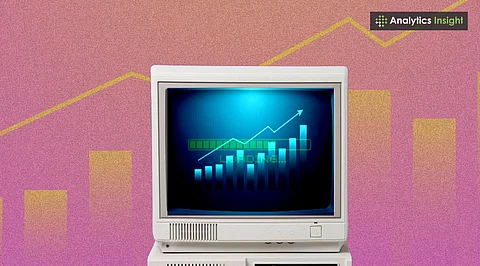Berkshire Hathaway has secured its position as the company with the highest stock price ever, reaching a remarkable closing price of $732,467 in June 2025. This unprecedented figure underscores the importance of not only profits but also company history, brand reputation, and investor loyalty. Some firms intentionally forgo stock splits, opting to maintain share exclusivity and stability, which can influence investment decisions significantly.
The market capitalization and share price are critical indicators for investors when evaluating potential stock purchases. Companies with the highest stock prices have consistently shown robust performance and sustained growth over the years. This article examines the ten highest stock prices recorded in history, highlighting their significance in the financial landscape.
Top 10 Record-Breaking Shares
The elevation of stock prices often reflects a company’s outstanding performance, profitability, and strong reputation. Here is a closer look at the ten record-breaking shares:
Berkshire Hathaway (BRK.A) continues to dominate the market, with its stock price reaching $732,467 as of June 2025. The conglomerate oversees a diverse portfolio, including well-known subsidiaries such as Helzberg Diamonds and GEICO Auto Insurance.
Lindt & Sprüngli AG, a prestigious Swiss chocolate manufacturer founded in 1800, has seen its stock price soar to CHF 134,000 by 2025. The company also owns popular brands like Ghirardelli and Russell Stover, contributing to its lofty valuation.
Seaboard Corporation, a leader in agribusiness and transportation, closed at $2,850 in June 2025. As one of the largest producers of grain and agricultural products in the United States, its stock price reflects its significant market presence.
From the construction sector, NVR Inc. has established itself with a closing stock price of $7,912 in 2025. The company is not only a prominent homebuilder but also engages in mortgage and title insurance services across the country.
The technology sector has also witnessed substantial stock price growth. Amazon (AMZN), for instance, rebounded post-COVID-19 pandemic, with its stock price reaching $208 as of June 2025, following a stock split in 2022. Its resilience highlights the ongoing demand for e-commerce solutions.
Booking Holdings, which encompasses Booking.com and Priceline, has made waves in the travel industry. The company’s stock price stood at $5,331 in June 2025, benefiting from the recovery of the travel sector.
Another tech giant, Alphabet, the parent company of Google, closed at $205.89 in 2025. The company’s leadership in artificial intelligence innovation, particularly with its AI assistant Gemini, continues to enhance its market value.
AutoZone (AZO), a leader in the aftermarket auto parts industry, closed at $3,880 as of May 2025. The company’s strong sales of essential auto parts like batteries and engine oil reinforce its competitive position.
Texas Pacific Land Corporation, regarded as a reputable landowner in Texas, closed at $1,732 in 2024. The company’s dual focus on water services and land resource management contributes to its strong market valuation.
Finally, Chipotle Mexican Grill is recognized as one of the largest Mexican restaurant chains globally, with a stock price of $68 as of June 2024. The company’s emphasis on quality and sustainability has driven its success in a competitive market.
Investment Insights
These top stock prices highlight a broader trend where higher valuations often correlate with significant revenue generation. Investors frequently perceive companies with elevated stock prices as offering long-term value. Nevertheless, entering the market for such high-priced shares typically requires substantial capital investment and a discerning eye for potential growth.
The data presented in this article outlines the most expensive stocks in history, illustrating their link to company performance and growth legacy. As investors navigate the complexities of the stock market, understanding the dynamics behind these valuations remains crucial for informed decision-making.







































































